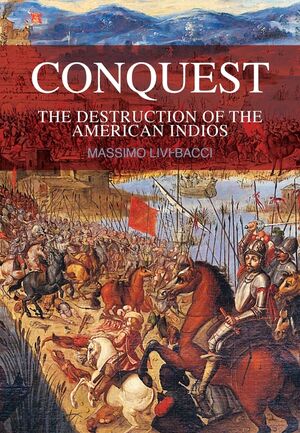|
"An impressive argument for
a more complex way of understanding the conquest of what is now
Latin America than the single-cause explanations that have been
dominant for the past several decades. The translation is
lucid and easy to follow, and the generous contemporary
illustrations of the life of the Indios at the time of conquest
further enrich the text."
Population Studies
"An excellent study ... the book provides fresh insights into
one of the most catastrophic episodes of early modern history and
the narrative thrust of the work makes it very readable."
Historical Association
"Well-illustrated, useful and balanced ... an excellent
provocative volume which should have wide appeal."
European Review of Latin American and Caribbean
Studies
"Bacci makes a significant contribution and should be applauded for
tackling a difficult academic question. [He] commendably moves the
discussion away from singular epidemiological explanations and
refocuses debate on the multiple means and various trajectories
involced in the conquest of indigenous peoples."
American Historical Review
"Massimo Livi-Bacci's Conquest is a brilliant,
fascinating history of the demographic catastrophe that enveloped
the New World after 1492. Thickly illustrated with the artistic
visions and voices of native peoples, it is the most even-handed,
comprehensive narrative available - now in a lively, fluid
English translation. Livi Bacci examines the evidence with the eye
of a seasoned detective, solving a series of mysteries - in
the West Indies, Mexico, Peru, and the Río de la Plata. Along
the way, he finds much previously overlooked evidence, which he
ingenuously assembles into a compelling, nuanced
interpretation."
Robert McCaa, University of Minnesota
"Was the decay of the Amerindian population man-made, or was it
brought about by the uncontrolled spread of pathogens or some other
factor? Massimo Livi Bacci, a world-leading demographer, joins, in
the present translation of his well-read book, the centuries-long
debate on the extent and the causes of the post-Conquest collapse,
adding to the discussion fresh insights based on his expertise in
population studies and on a judicious and thorough historical
research."
Nicolás Sánchez-Albornoz, New York
University
|

